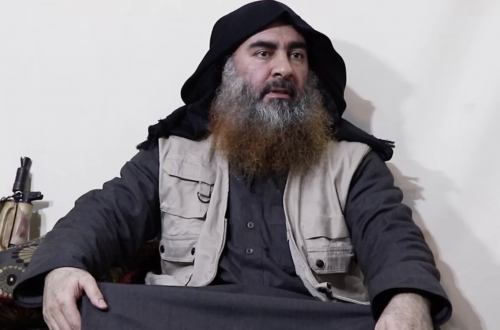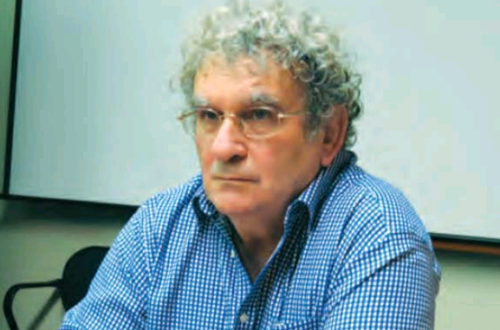This is a Cross Post from Futile Democracy
Original can be viewed here
The horrifying stories and pictures coming out of Gaza as Hamas launch rockets indiscriminately across the border, and Israel bombard the isolated region resulting in innocent lives lost and fear gripping both sides, rightfully strike at our collective sense of humanity. But it is the romanticised notion of a David and Goliath situation, and the bizarre attempts to either refuse to acknowledge the crimes of Hamas (upon Palestinians as well as Israelis), any wrongdoing whatsoever on the Palestinian side, or to explain away anti-Israeli sentiment whilst willfully silent on abuses elsewhere when they crop up, that seems to be the centre of the Galloway-left response.
Mehdi Hasan’s article for Huffington Post, entitled “We Single Israel Out Because We in the West Are Shamefully Complicit in Its Crimes” was one such attempt to justify a moral compass that only swings into action on human rights and oppression, when it involves Israel or the West in general, isolated from all surrounding context. Hasan says:
“According to the likes of Ben-Ami, there are much more vile regimes, and more violent groups, elsewhere in the world. Why pick on plucky Israel? What about the Chinas, Russias, Syrias, Saudi Arabias, Irans, Sudans and Burmas? Where are the protests against Isis, Boko Haram or the Pakistani Taliban?”
– The criticism from ‘the likes of Ben-Ami’ is a correct one. Western faux-liberals are essentially silent on the crimes of ISIS or Boko Haram, or Hamas. If they do offer criticisms, it’s very quickly glossed over with a criticism of the US or Israel. A sort of “Yeah ISIS is bad, but Blair…” mentality. There are very few willing to stand up for those lives threatened and lost due to blasphemy laws across the religious World, instead having a collective meltdown whenever someone publishes a cartoon of Muhammad. There isn’t a care in the World for the people of Balochistan. The hideous treatment of the LGBT community in the Middle East and Uganda only gets a passing mention by Hasan in a horrifyingly self serving article, in which they’re just a tool to explain to the reader why he doesn’t consider himself a homophobe. Mehdi goes to great lengths to explain why it is he feels the need to focus so much time and energy on Israel. I don’t buy his excuses.
One of Hasan’s ‘complicity’ points in his new article, is that Israel is funded to a large degree by the US. This is of course true, but it is also true – to a much less extent, but still represents ‘complicity’ in the same form – of the Palestinian Authority. By 2010, the main contributors to the Palestinian Authority – amounting to around $1.8bn in 2008, and $1.4bn in 2004 – were the EU and the US. This, despite a ‘Middle East Monitor’ (MEMO)report on widespread corruption within the PA. MEMO, referencing an EU report, quotes a figure of $2bn in aid to the PA, lost to corruption. It quotes a Kuwaiti newspaper in 2005, that accused Arafat of transferring large amounts of aid money to foreign bank accounts. A senior official at the Ministry of Finance in Palestine was caught trying to flee to Jordan with $100mn. In 2012, the Arab Organisation for Human Rights released a report accusing the Palestinian Authority of:
“…inhumane practices and human rights violations.”
– In 2013, blogger Anas Awwad – a critic of the PNA – was arrested and charged with “extending his tongue” against the policies of the PA and President Abbas. Similarly, Ismat Abdul-Khaleq – a lecturer at a university in the West Bank – was arrested for criticising Abbas. If the EU and US is complicit in the crimes of the Israeli leadership, which in turn means we should single out Israel, then they are also complicit in the crimes of the Palestinian leadership , as are those offering their unquestioning support for the Palestinian leadership, and so by implication, we should single the PA leadership out too. A leadership that has enriched itself, to the detriment of the Palestinian people.
According to the World Bank, Pakistan is one of the biggest receivers of US aid, with $3508.6 in 2011 alone. Why no outrage at the Pakistani treatment of the Baloch region? Why very little mention of the millions displaced people from the Federally Administered Tribal Areas? Are we not complicit in that and should we be therefore singling Pakistan out for special criticism? Should we be less outraged, because less money (even though it’s still a huge amount) is given to Pakistan than Israel? If so, by Mehdi’s standards, we should be marching on London right this second.
In 2011, $977.8mn of US aid went to Jordan. Human Rights Watch reported that Jordan had been turning away Syrian refugees who happen to be of Palestinian heritage, or sending them to holding camps near Ramtha, simply for being Palestinian. Jordan also prohibits the right to convert from Islam. Are we not complicit in that too? Should we be singling out Jordan for how their anti-apostasy laws, and their ill treatment of Palestinians?
The Democratic Republican of Congo received $5532.5mn in US aid in 2011, despite torture of civilians by authorities, and members of the army using rape as a way to punish those from communities they dislike. Are we complicit with those too, and should Hasan therefore be more vocal in his criticism?
Let’s also not forgot that George Galloway handed £25,000 to Hamas live on TV a few years back. That was in 2009. On April 7th 2011, Hamas shot a Kornet anti-tank missile at a school bus in southern Israel, killing 16 year old Daniel Viflic. If even a penny of that £25,000 went to procuring the missile that killed Viflic – or any act of violence since 2009 by Hamas – Galloway is complicit, and Hasan remains silent.
Hasan goes on to ask:
“Which other country is in receipt of $3billion a year in US aid, despite maintaining a 47-year military occupation in violation of international law?”
“Which other country’s prime minister could “humiliate” – to quote the newspaper Ma’ariv – a sitting US vice-president on his visit to Israel in March 2010, yet still receive 29 standing ovations from Congress on his own visit to the US a year later?”
– Well, they’re very specific comparative criticisms. He’s right. No other country has maintained a 47-year military occupation, receiving $3bn in US aid. However, that particular crime (and it is a crime) doesn’t negate the crimes of other nations receiving similar amounts. It’s just one specific crime he mentions. For example, Whilst the US gave just over $3bn in aid to Israel in 2012, it gave over $12bn in economic and military aid to Afghanistan in 2012. This, despite Aghanistan’s National Security Agency accused of torturing suspects, and harassing journalists, and despite the LGBT community facing long jail terms and despite Karzai signing into law the hideously misogynistic ‘Shia Family Law’. Israel may be occupying a region, but in Afghanistan, religious supremacists occupy the entire country, by enshrining its unjustifiably privileged position into the function of state. To rephrase Hasan’s question, which other country is in receipt of $12bn in US aid, despite enshrining religious supremacy to the point where women and the LGBT community are relegated to second class, and criminals?
He’s also right again. No other Prime Minister received 29 standing ovations after humiliating the Vice President. Because that’s a very specific criticism. However, according to Kenya News Online and The Daily Caller, President Karzai humiliated the President of the United States, more than once. Very specific comparative criticisms posed in this way, do not add any credit to the overall point, and appear weak when placed into context.
Indeed, we could also argue that statements Mehdi has made in the past (non-believers lacking intelligence, living like animals, whilst Muslims have the moral high ground), render him complicit in the perpetuation of religious supremacist narratives that continue to manifest as human rights abuses. Complicity, like every other point of debate in the Israel and Palestine conflict, is easy to use against those so deeply partisan on the subject on both sides. In this case, the argument from Mehdi did not seem to be a high quality, well reasoned argument, solely because that wasn’t its aim. Its aim was to absolve Mehdi of his inconsistent moral compass, that lays dormant until a global event that involves Israel or the US appears, at which point, his moral compass spins wildly out of control.


